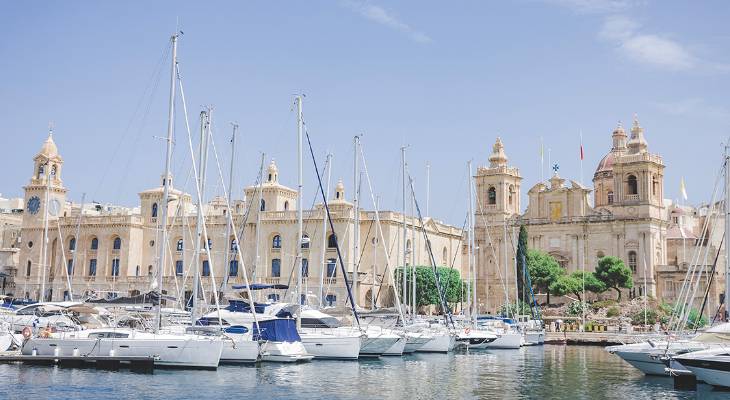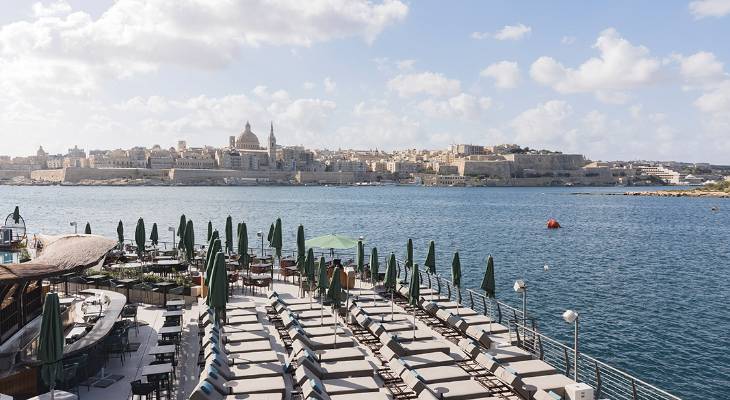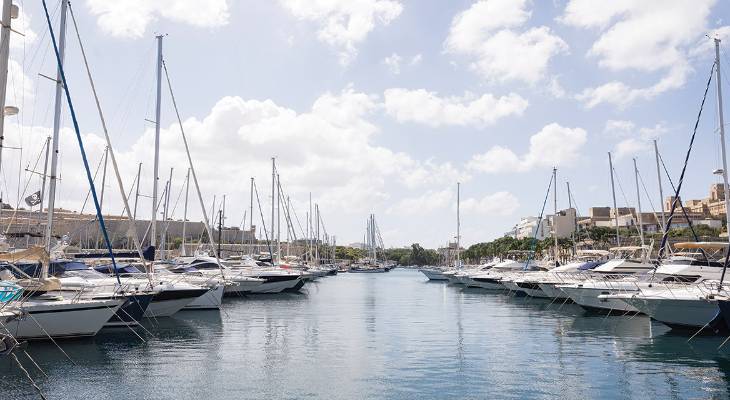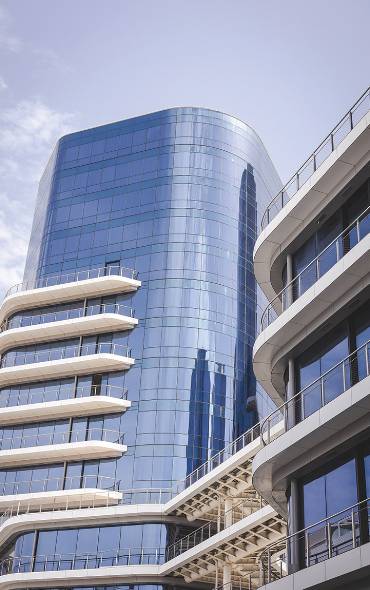From digital innovation to strategic business incentives, Malta is fast becoming one of Europe’s most dynamic hubs for entrepreneurs and investors. Here's what makes the island a top destination for business success.
Over the past few decades, Malta has transformed from a modest island nation into a vibrant hub for international business and finance. Since joining the European Union in 2004 and adopting the euro in 2008, the country has leveraged its strategic location, robust regulatory framework and pro-business environment to attract a diverse range of industries and investors in lucrative high-tech sectors like advanced manufacturing, aviation maintenance, financial services, iGaming, cryptocurrency, and emerging technologies such as Artificial Intelligence (AI).

Inigo Taylor
Economic Overview
Malta’s economy demonstrates resilience and growth. According to the Central Bank of Malta, the country’s gross domestic product (GDP) is expected to grow by 4 per cent in 2025, with projections of 3.6 per cent growth in 2026 and 3.3 in 2027. The unemployment rate remains low, standing at 2.8 per cent in March 2025, reflecting a strong labour market.
Foreign direct investment (FDI) continues to flow into the country, with total FDI reaching €466 billion by mid-2024, marking an increase of over €13 billion during the first six months of 2024. The main contributors to inward FDI were financial and insurance activities.

Inigo Taylor
Setting Up a Business in Malta
Malta offers a favourable environment for entrepreneurs and businesses looking to establish a presence in Europe thanks to its well-established regulatory environment based on EU law, advantageous tax regime, attractive Government incentives, and well-educated and highly motivated workforce. Moreover, doing business in Malta does not only mean access to trade in the EU, but also access to Africa and the Middle East, as Malta has developed healthy business ties and beneficial fiscal agreements with various countries in these two regions too. The process of setting up a business involves several key steps:
1. Choosing the Business Structure:
Decide between operating as a self-employed individual or establishing a limited liability company (LTD). An LTD provides limited liability protection and is often preferred for larger operations. On the other hand, there are more bureaucratic steps to follow when setting up such a company (as opposed to starting a business as a self-employed person), including undergoing an annual audit, so make sure your business is viable before registering it as LTD. You need to be at least two shareholders to register a company.
2. Preparing Documentation:
Draft the company’s memorandum and articles of association. Engaging legal and accounting professionals can ensure compliance with local regulations.
3. Opening a Bank Account:
Deposit the minimum share capital into a bank account opened in the company’s name. The bank will provide a receipt required for company registration.
4. Registering the Company:
The filled-in company registration form, together with the memorandum and articles of association, and the share capital deposit slip must be presented to the Malta Business Registry. Registration is done within two to three days and the registration fee depends on the size of the company.
5. Obtaining Licences and Tax Identification:
Depending on the business activity, specific licences may be required. Additionally, a tax identification number must be obtained for tax purposes and a tax return form will need to be submitted once a year.
6. Registering for VAT and as an Employer:
You will also need to register with the Value Added Tax (VAT) Department to obtain a VAT number, as well as obtain a PE number if hiring employees. Both steps are free of charge and can be carried out online.
7. Employment Registration:
All employees must be registered with Jobsplus, Malta’s public employment service. The process is quick and free of charge.
Government agency Business First provides support and guidance throughout this process. More information can be found on their website: www.businessfirst.com.mt.

Inigo Taylor
Real Estate and Property Investment
Securing the right property is a crucial step for both personal relocation and business operations. Key considerations include:
Engaging Real Estate Agents:
Numerous agencies specialise in residential and commercial properties. It’s advisable to consult multiple agents to explore a range of options.
Legal Agreements:
Upon selecting a property, a promise of sale agreement (konvenju) is signed, involving a notary public. At this point you are obliged to pay 1 per cent of the 5 per cent provisional stamp duty. The total sum is payable upon completion of the sale. You must also pay a deposit which is usually around 10 per cent of the agreed sale price.
Permits for Non-EU Citizens:
You don’t need a permit to buy a house here unless it’s a secondary residence. Non-EU nationals, however, require an Acquisition of Immovable Property (AIP) permit to purchase property in Malta.
Rental Considerations:
If you are considering renting out your property as a holiday home, you must obtain specific permits, and income must be declared for tax purposes.

Inigo Taylor
Emerging Economic Sectors
In recent years, the country has established itself as a prime destination for several tech companies looking for a secure, reliable and reputable jurisdiction to base themselves in, drawing companies from a wide spectrum of digital and innovative sectors, ranging from blockchain, FinTech and EdTech to AI, Internet of Things (IoT), software development, and Esports.
The nature of the country’s economy has indeed positioned it at the forefront of digital finance innovations, fuelled by proactive responses to emerging needs and supportive governmental policies. Notably, Malta pioneered dedicated frameworks for Distributed Ledger Technology (DLT) and launched its first national strategy for AI in 2023, underlining its commitment to staying ahead in these fields.
The Malta Financial Services Authority (MFSA) further bolsters investor appeal with its regulatory sandbox for testing innovative business models. The nation’s investment appeal is complemented by a robust human capital pool, nurtured through strategic investments in specialised education, particularly in machine learning and finance-related disciplines. Malta’s digital infrastructure stands out globally, with ongoing initiatives ensuring top-tier connectivity, offering investors reassurance for their projects’ scalability and sustainability.
The Malta Digital Innovation Authority (MDIA), launched in 2018, pioneered global regulation of blockchain, Initial Coin Offerings (ICOs) and virtual currencies. Tasked with certifying DLT platforms and smart contracts, it collaborates with the MFSA, which licenses and supervises virtual financial assets exchanges, ensuring consumer protection and market integrity.
The MDIA was established when Malta passed the Virtual Financial Assets Act, making it the first jurisdiction to license crypto operators. The EU’s subsequent landmark legislative package for the industry, that came into force in mid 2023, draws extensive inspiration from Malta’s framework. This ensured that crypto operators based in Malta faced minimal additional compliance requirements under the bloc’s new rules.
Evolving with global trends, the MDIA now drives Malta’s quest to excel in AI, fostering innovation without stifling it, and supporting individuals and organisations in mastering and utilising AI technologies.
Meanwhile, local businesses are starting to make use of AI to trim costs, such as having a chatbot as the first point of contact for customer queries. If you’ve got a healthy risk appetite, investing in AI in Malta in these early stages could ultimately yield excellent results, before competition begins to grow. If you would like to get a better feel for the industry and the network of people within it, keep an eye out for conferences and events on AI that typically take place in Malta between September and November.
The regulatory push for all-things digital has made Esports, alongside video game development and extended reality, additional niche areas offering interesting investment opportunities. The vast number of skilled software developers, graphic designers and IT proficient workers makes Malta an attractive option for investors. And with an exciting enough project, it should not be difficult to find skilled workers to fill the roles.
With the global Esports industry projected to reach a global audience of 64.8 million people in 2025, according to Statista, a global provider of market and consumer data, it’s no surprise that Malta has opened its doors to Esports companies just as it did with gaming. While still a budding industry locally, Government’s commitment through ‘Malta’s Vision for Video Games Development and Esports’, launched in May 2019, will help propel this sector forward, with plans to grow it from 0.1 per cent to 1 per cent of the islands’ GDP in 10 years.
Tying all this together is the Maltese Government’s plan and commitment to transform the country’s economy into a digital one in the coming years, enhancing ICT policy development and implementation that is intended to meet the expectations of citizens, civil society and businesses – and its efforts are paying off.
Malta’s strategic location, dynamic economy and supportive business environment make it an attractive destination for investors and entrepreneurs. With ongoing developments in various sectors and a commitment to innovation and sustainability, the country offers numerous opportunities for growth and success.